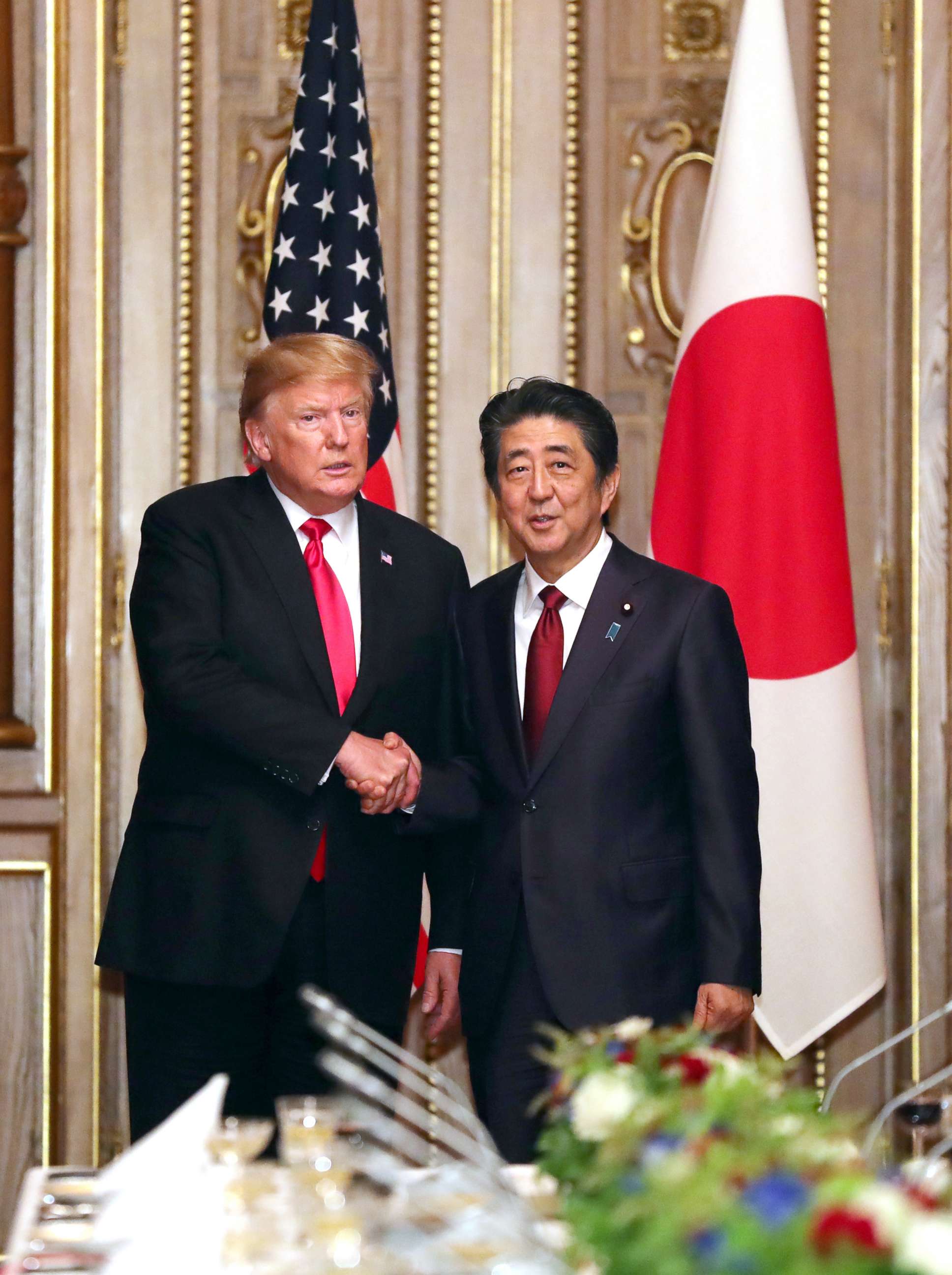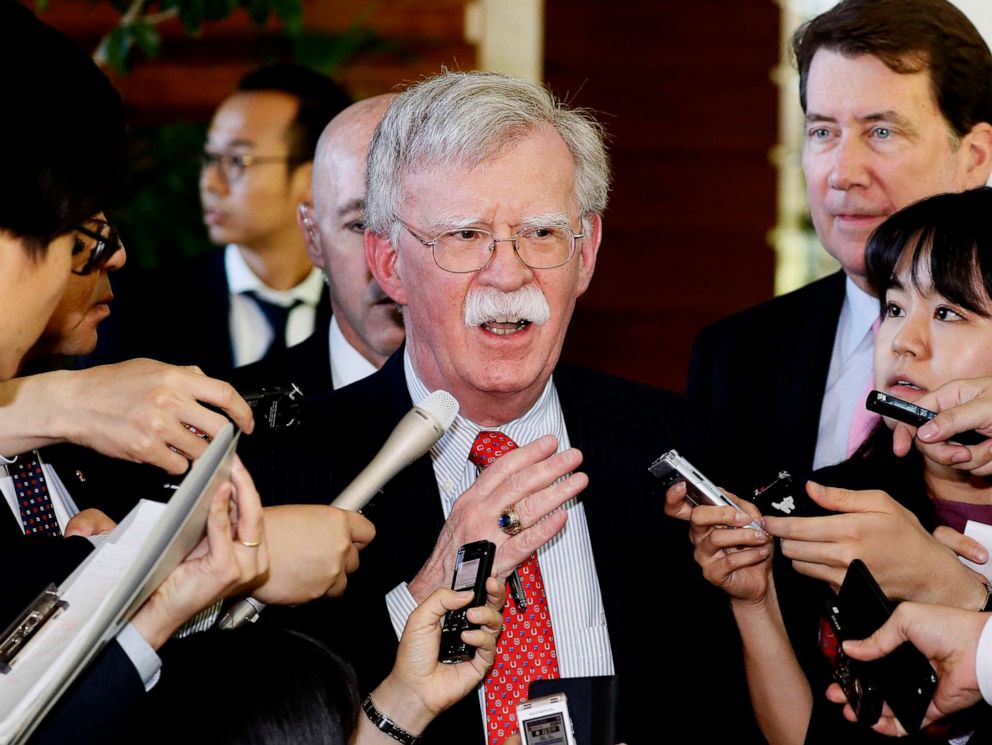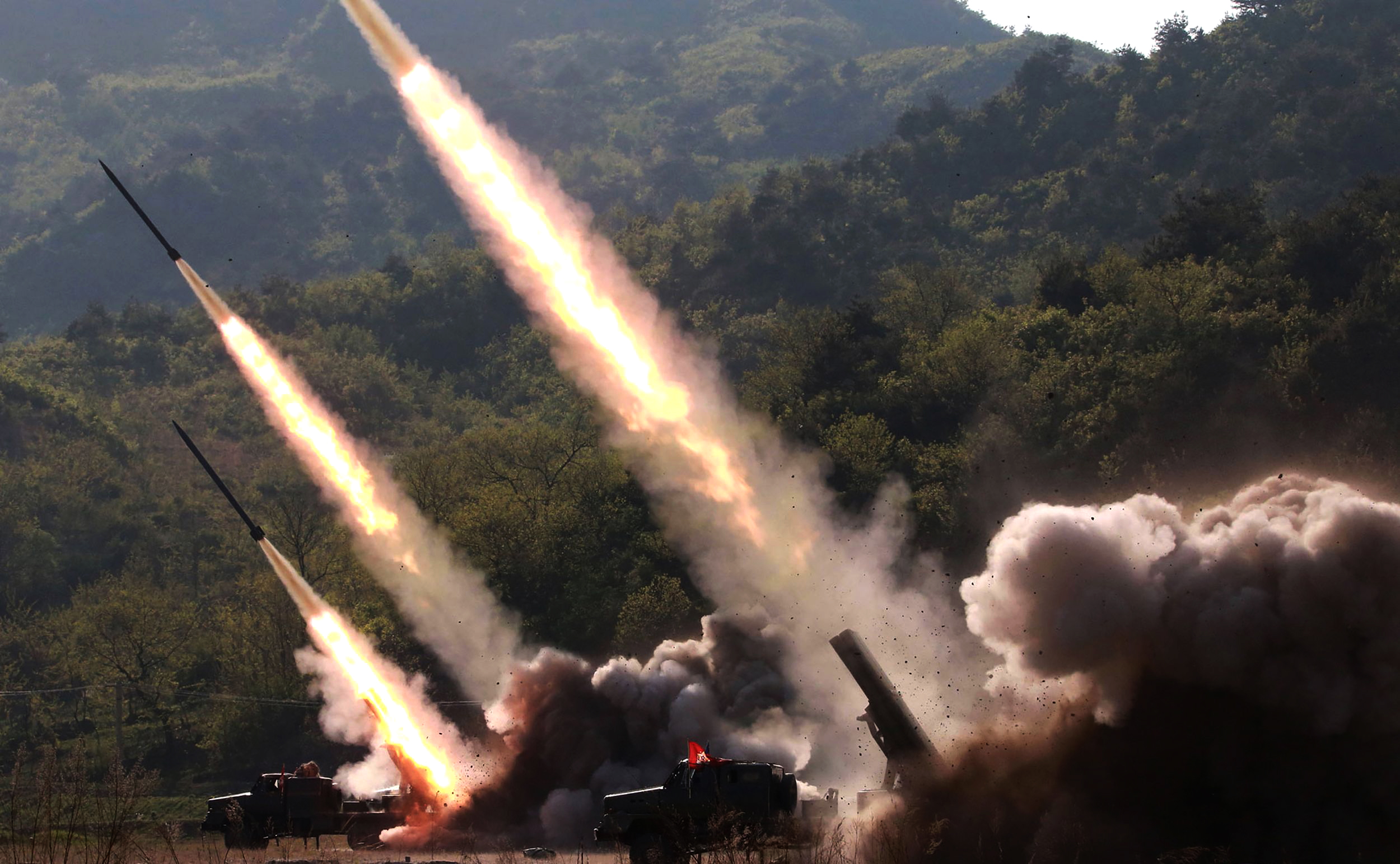Cracks, confusion in US approach to North Korea as Trump openly defies advisers
The differences come three months after the Hanoi summit ended with no deal.
Three months after the Hanoi summit between President Donald Trump and North Korea's Kim Jong Un, cracks and confusion are starting to show in the administration's approach.
President Trump said he views recent missile launches by Kim's regime "differently" than his advisers. The State Department declined to call those launches "ballistic missiles" or say they violated United Nations Security Council resolutions, even after the Pentagon used the term "ballistic missiles" and National Security Adviser John Bolton said they were violations. And while the State Department says talks with North Korea are "ongoing," Bolton said the North Koreans "have not responded" to the chief U.S. negotiator.
The president's meeting in Hanoi, Vietnam, with Kim ended without a deal, and since then, both sides have doubled down on their negotiating positions. The U.S. demanded North Korea begin dismantling its entire nuclear weapons program, but North Korea said it will not take any steps until it receives sanctions relief. While American officials like Secretary of State Mike Pompeo say Kim agreed to "denuclearization," the two sides have not agreed on what that means, with different definitions on the scope of what's required of North Korea and the order of actions.

Despite that stalemate, Trump continues to paint a rosy picture of negotiations, insisting that he's "in no rush" to make a deal and Kim "understands" the right path forward.
That flies in the face of provocative statements by North Korean state media and those recent missile launches, which Bolton said on Saturday violated U.N. resolutions.
"My people think it could have been a violation, as you know. I view it differently," Trump said Monday in Japan. "Perhaps [Kim] wants to get attention, and perhaps not. Who knows? It doesn't matter."
That's left "mixed messages and incoherent policies," according to Michael Fuchs, who served as deputy assistant secretary of state for East Asian and Pacific Affairs in the Obama administration. "What Trump doesn't understand is that the U.S. can make clear its ongoing interest in diplomacy with North Korea while also calling out North Korea's provocative behavior."

Pompeo, the administration's point person on North Korea, tried to walk that line Tuesday. Spokesperson Morgan Ortagus would not say whether he and the agency believed it was a violation, instead trying to take a middle-of-the-road approach.
"The entire North Korean WMD program - it's in conflict with the U.N. Security resolutions," she said. "What the secretary is focused on, where he's trying to support the president is in trying to negotiate a peaceful end to the North Korean WMD program."
Ortagus did not call those launches "ballistic missiles," instead using the term "launches." An assessment of what North Korea test fired has not been "shared publicly," she said.
But the Pentagon has called them "ballistic missiles." Spokesperson Lt. Col. Dave Eastburn said on May 9, "North Korea flight-tested multiple ballistic missiles."
The distinction is important in determining whether or not North Korea violated U.N. Security Council resolutions. The international body "demand[ed] that the DPRK not conduct any further nuclear test or launch of a ballistic missile" in a 2006 resolution and "demand[ded] that the DPRK not proceed with any further launches using ballistic missile technology" again in 2013, using an acronym for North Korea's formal name, the Democratic People's Republic of Korea.

While Trump has dismissed the launches, the State Department may have hinted at why it has taken a softer tone: "We want these talks and discussions to remain ongoing," Ortagus told reporters Tuesday. "We're focused on the relationship between President Trump and Kim Jong Un and continuing talks and dialogue."
But since the Hanoi summit, the U.S. has "really... not heard much from North Korea," Bolton said on Saturday in Japan. The lead working-level negotiator for the U.S., Stephen Biegun, "can't wait to talk to his North Korean counterpart, but they have not responded," Bolton added.
The State Department declined to say whether Bolton was right.
"The United States remains ready to engage in constructive discussions. We continue to invite our counterparts for negotiations," a spokesperson told ABC News.
Last Thursday, Ortagus said, "Talks and discussions are ongoing." While there have been some contacts, Biegun hasn't had a meeting at the working-level in the three months since Hanoi.
Still, the U.S. has "hope in these talks," Ortagus said, "because [Trump and Pompeo] have had face-to-face conversations with Kim Jong Un, in which they felt like they had a real commitment from him to denuclearize."
That may be the case in writing, as the Singapore declaration commits both sides to the "complete denuclearization of the Korean Peninsula." The problem, again, is that both sides have different definitions, which Bolton has said they did not find agreement on in Vietnam.



